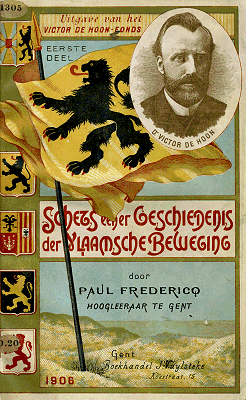
Henri Pirenne was a Belgian historian. A medievalist of Walloon descent, he wrote a multivolume history of Belgium in French and became a prominent public intellectual. Pirenne made a lasting contribution to the study of cities that was a controversial interpretation of the end of Roman civilization and the rebirth of medieval urban culture. He also became prominent in the nonviolent resistance to the Germans who occupied Belgium in World War I.
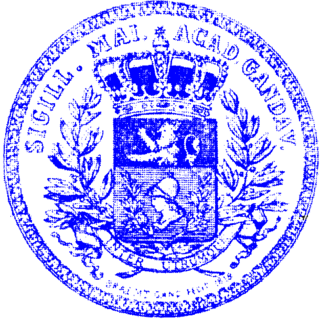
Ghent University is a public research university located in Ghent, Belgium.

Dirk Verhofstadt is a Belgian social liberal (Rawlsian) theorist and younger brother of former Belgian Prime Minister and former ALDE European Parliament Leader Guy Verhofstadt. He has a keen interest in political philosophy, and his philosophical outlook is influenced by Karl Popper, John Stuart Mill, Cesare Beccaria, Thomas Paine, Amartya Sen and Martha Nussbaum.
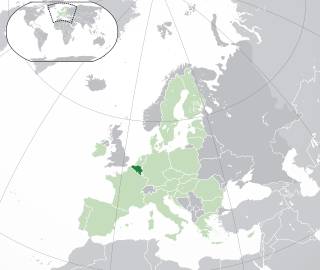
Lesbian, gay, bisexual, transgender (LGBT) rights in Belgium are seen as some of the most progressive in Europe and in the world. In 2021, ILGA-Europe ranked Belgium as second in the European Union for LGBT rights protection, behind Malta.
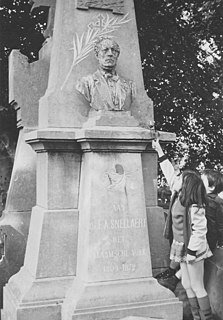
Ferdinand Augustijn Snellaert was a Flemish writer.

Julius Vuylsteke was a Belgian liberal politician and writer. He started his career as a lawyer, but later opened a bookshop. As a liberal Flemish politician, he founded the liberal association 't zal wel gaan, and he played an important role in the Flemish movement. Julius Vuylsteke promoted cultural cooperation of Flanders with the Netherlands. He became President of the Willemsfonds, and after his political career he gave his attention mainly to the history of Flanders. In 1867, he founded the Flemish weekly Het Volksbelang, which appeared for the first time on 12 January 1867. In 1867, Julius De Vigne was one of the editors together with Julius Sabbe, Jozef Van Hoorde, and Adolf Hoste.

Frans de Potter was a Belgian writer in the Dutch language.

Herman Louis Cesar Teirlinck was a Belgian writer. He was the fifth child and only son of Isidoor Teirlinck and Oda van Nieuwenhove, who were both teachers in Brussels. As a child, he had frail health and spent much of his time at the countryside in Zegelsem, with his paternal grandparents. He was nominated for the Nobel Prize in Literature six times.
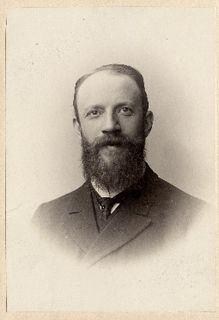
Louis Marie François Franck was a Belgian lawyer and liberal politician.

Stefan Hertmans is a Flemish Belgian writer. He was head of a study centre at University College Ghent and affiliated researcher of the Ghent University. He won the Ferdinand Bordewijk Prijs in 2002 for the novel Als op de eerste dag.
Filip Claus is a Belgian photojournalist. He focuses on street photography and 'life reportage' style.

The Vlaamsche Hoogeschool, commonly referred to by its detractors as von Bissing university, was a Dutch-speaking university established at Ghent in German-occupied Belgium in October 1916. The university, which was separate from the existing Ghent University, formed part of the German Flamenpolitik and was a response to the long-established grievance of the Flemish Movement which campaigned against Ghent University's curriculum being taught only in French, despite the university being located in Dutch-speaking Flanders. The institution took its informal name from Moritz von Bissing, the German Governor-General of Belgium from 1914 to 1917, who was one of the chief proponents of the Flamenpolitik.

This is a timeline of Belgian history, including important legal and territorial changes and political events in Belgium and its predecessor states. To read about the background to these events, see History of Belgium. See also the list of Belgian monarchs.
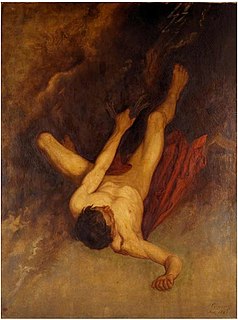
Adolphe Pierre Sunaert, Adolphe Sunaert or Adolf Sunaert was a Belgian painter, printmaker, teacher and author. He played a role in the organization and conservation of the art collections of the city of Ghent.
Antoine Philippe De Schryver (1924–2005) was a Belgian art historian and professor at the University of Ghent, where he lectured on History of Book Illumination. He was specialized in the field of illuminated manuscripts in the Southern Netherlands, 15th century painting, and artists at the Burgundian Court.

Léonard Willems (1864–1938) was a Flemish philologist from Brussels, Belgium, who was active in academic circles in Ghent.
Herman Vander Linden (1868–1956) was a Belgian historian who was a professor at the University of Liège.
The Maetschappy der Vlaemsche Bibliophilen, in its later years Maatschappij der Vlaamsche Bibliophilen was a text publication society based in Ghent, Belgium. The society was founded by Philip Blommaert and Constant-Philippe Serrure in 1839 to produce editions of medieval Flemish literature. It was active until 1909. By current scholarly standards, the quality of the editions shows little palaeographical and codicological expertise.
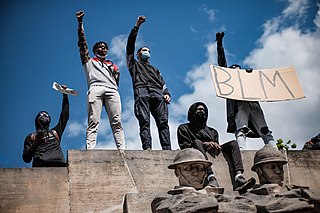
Shortly after protests seeking justice for George Floyd, an African-American who was murdered during a police arrest, began in the United States, people in Belgium protested to show solidarity with Americans and to demonstrate against issues with police or racism. Vigils and protests of up to thousands of participants have taken part nationwide.

Pan-Netherlands, sometimes translated as Whole-Netherlands, is an irredentist concept which aims to unite the Low Countries into a single state. It is an example of Pan-Nationalism.

